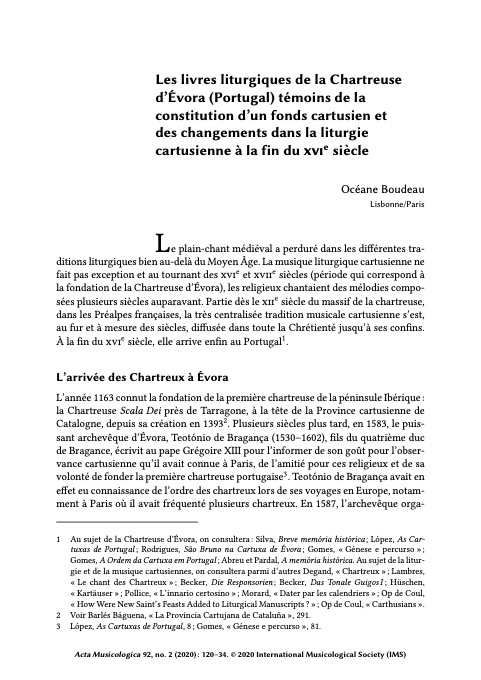Abstract
The musical collection of the Charterhouse of Évora owns manuscripts and printed books well known by researchers, with the exception of one antiphonary kept in the Palácio Duques do Cadaval, which I identify as being a Carthusian book. Built at the end of the sixteenth century, the Charterhouse of Évora (Scala Coeli) is the first Portuguese charterhouse. Although written or printed at the end of the sixteenth century, or at the beginning of the seventeenth, the books used in the Charterhouse of Évora bear witness to a liturgical tradition as ancient as the Middle Ages. Generally stable, the Carthusian liturgy, nonetheless, suffered some changes ratified at the end of the sixteenth century. The books of the Charterhouse of Évora are thus testimonies to the integration of these changes into the Carthusian liturgy. They also bear witness to the constitution of a liturgical collection for the daily recitation of the divine office.
